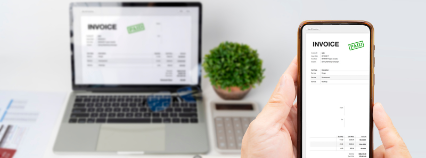Blog

25 Apr, 2024
From 1 April 2024 “Electronic Marketplace” transactions will be subject to GST in New Zealand, even if the person delivering the service, is not GST registered. This legislation was passed in 2023, and although National campaigned on repealing this law if they got into power, they confirmed in December 2023 that they will now leave the legislation in place. The new legislation covers more than just properties, it also covers Uber and Uber Eats, for example. But we are just focusing on the property implications and what it means if you own or rent out a room, bach, or an investment property. If you have booked a property for a work or family trip any time after 1 April 2024, you should also continue reading, as there are possibly implications for you too. So, what does the law say? That platforms like Airbnb, Booking.com, Expedia, Vrbo etc. are required to charge GST on all transactions and pay this GST over to Inland Revenue (IRD) where the owner of the property is: GST registered: Pay 15% to IRD. Report your income as zero-rated on your GST return. This ensures the income is declared and you do not pay the GST twice. It also means that you claim your GST on expenses, and will likely receive refunds each GST return. NOT GST registered: Pay 6.5% of the GST to IRD and pay the remaining 8.5% to the property owner. If you are not registered for GST there is nothing for you to do. You only qualify for an exemption if: your income from these activities is over $500,000 per year: or you had more than 2,000 nights booked in a year. This means that all these platforms are frantically updating their software to allow for the collection and payment of GST to IRD. Here’s what we do know: Expedia : They have NOT been able to update their software and will be removing ALL NZ listed properties from 1 April 2024, unless you qualify for the exemption above. If you have a property listed on Expedia, they possibly may remove it. There is no clear guidance as to what happens if you have bookings for the future but we suggest you contact your guests. Be careful how you do this though, as it’s against Expedia’s rules to make contact with guests outside of their system. If you are travelling and made a booking on Expedia, you may also have an issue - contact your host to work out what to do. Vrbo (ex Bookabach): While owned by Expedia, they have upgraded their software and will be able to cope with the new GST. But be aware, from 1 April they will automatically add 15% GST to all bookings. So, this will increase your nightly rate by 15% and make your property more expensive. You will have to manually update your rates to reflect this change. Airbnb: They, too, have decided they will add 15% GST to every booking from 1 April 2024. Their system says they are not yet set up to deal with NZ GST. Booking.com: They have not yet provided guidance on what they are planning to do. Will they be like Expedia and just stop supporting NZ properties or will they be like Airbnb and just add 15% to all bookings? So, a warning, if you are not GST registered, and you have not told your platform provider, it appears they will default to adding 15% GST to your property and pay this 15% to IRD. How you get your 8.5% back remains a mystery. If you are planning on booking accommodation, be wary of using Expedia or Booking.com, as a booking after 1 April 2024 could potentially cost you 15% more! In any event, landlords and holiday makers should revert to their booking platform for the latest information and policies. If you want to know more please reach out to us.

23 Apr, 2024
Everyone likes efficiency, the more efficient something is, the better - right? Especially with the economic climate still needing some work. If you’re wanting to save some time (and money), making your business processes more efficient is a good place to start. It also means that you can put more time into working ON your business, rather than in it. Here are five ways you can make your business a little more efficient. Better invoicing This sounds obvious, but the more efficient you are at invoicing, the less time you spend on it and the more time you save. And time is money. Develop a process that makes this more efficient – which is something that can vary by industry. Think about whether you can set up recurring invoices or have your staff invoice for the job on completion. Where can you reduce the headache of invoicing and make it more efficient? Streamline expense claims Develop a digital solution for your expense claims process. This way your team can submit their receipts and approve expenses online – which reduces mistakes, and not having everything you need to approve the expense. Utilise online/digital software Almost everything has a digital version, so it’s time to utilise it so you have business data wherever you are. No more going back to the office to check a number, getting back to clients with final details, or reworking quotes because the numbers were wrong. If it’s all available at your fingertips, this drives efficiency. Maintain lean(er) stock levels If your business sells inventory, lean inventory management could help you reduce unwanted costs, and become more efficient. The idea is you only produce or order in the stock you actually need. By optimising inventory levels, you can reduce carrying costs and align supply with customer demand, which means you won’t be falling over, or holding space for, excess stock. Review your overheads Another component of business efficiency is keeping costs down – like overheads. Have you checked if the costs from your suppliers, like rent, bills, and transport, are needed? Have you also looked for ways to reduce these costs?Consider whether you can achieve the same outcome for lower costs? Could alternative suppliers provide a quality service at lower cost? Are office supplies being stockpiled from habit rather than need? If you need tailored advice on how you can make your business model more efficient, get in touch with us.

18 Apr, 2024
Finding the right staff for your business can be tough. Hiring can be challenging, but the right team can really support the growth of your business. Attracting the right staff starts with writing a recruitment ad that makes your role stand out in the crowd. Here are three ways you can make your job ad more appealing: Sell the role Rather than beginning the ad with the job description or a list of requirements, start with what makes the job most appealing. Is it the industry, location, pay, or perks? Be up front with the advantages so that it’ll grab people’s attention and encourage them to read further. Keep it short and sweet While it can be tempting to write a novel so that it paints your business in the best light, it’s better to keep your job ad short and sweet. Aim for a maximum of 700 words that are straightforward with readable language, and avoid adding unnecessary words or repetition. Avoid meaningless clichés Every job ad mentions their amazing team, or how the environment is fast paced. Everyone says they’re offering a ‘competitive salary’. All jobs are looking for self-starter’s or those who can hit the ground running. Rather than using the same phrases as everyone else, be different. What can you write that makes your business stand out from the crowd – you could provide the actual salary, for instance. Describe the job, the team, and the environment clearly and accurately. This helps the candidate get a genuine understanding of the role and that’s what piques their interest – not the same phrases that everyone else is using. Hiring Now that you’ve attracted the right person for your team, make sure you cover your bases when hiring (especially around trial periods). If you need help with employment contracts or other employment-related questions, let us know we’re here to help.

14 Apr, 2024
As a farmer, you have access to financial tools that help you deal with the unpredictable nature of farming. These tools are really useful for handling the ups and downs of market prices and costs, which is especially important for dairy farmers who often see milk prices change. You can protect your income from dropping milk prices by setting the price in advance through futures contracts or options. Lock in pricing In New Zealand, if you're a dairy farmer, you can lock in the price of your milk. For example, if you supply to Fonterra, you can fix the price of up to half of your milk with their programme. It's important to know your break-even milk price and to have a plan that helps you make decisions without getting swayed by emotions or guesses. You can figure out your break-even price by looking at your farm's past financial records, or using tools like DairyBase, and you can predict future break-even prices with your budget. Interest Rates It's also key to manage your interest rates to keep your finances stable. You can use different financial tools to control how much you pay on loans, like locking in interest rates to prevent them from going up, which can save you money and increase your profits. Having an overdraft, or a line of credit, can also give you the cash you need for day-to-day farm work. Feed Costs Managing how you buy and store feed is important to keep costs down. Buying feed in bulk, and having contracts for it, can save you a lot of money. This helps make this big farming expense more predictable and easier to handle, which is good for your financial planning and keeping costs the same all year round. To protect your farm business from changing market prices, use strategies like futures contracts to lock in costs for things like feed, fertiliser, and fuel. This helps manage risks and could make banks more likely to lend you money because your income is more predictable. Use forward contracts to set prices for your products, such as wool or milk, ahead of time. This makes it easier to plan your finances and trade, but you need to understand the market well to benefit from these contracts. For farmers, especially in New Zealand's dairy industry, it's important to use financial tools to deal with price changes and make your business stronger. Knowing the market and your options is key. Our experts can help you navigate these areas and strengthen your farm's finances. Reach out for more information.

21 Mar, 2024
We’re nearly at the end of the financial year, so if you’re balance date/end of financial year is 31 March, there are a few things you need to do to help us prepare your financials. Take a stocktake If your business sells products/has stock, you’ll need to do a stocktake on 31 March. If you’re a business that sells products, then you need to take a stocktake of your physical inventory. If you’re a farmer, then you need to take a physical livestock tally. Send in your EOY papers Compile a folder (digital or hard copy) with a copy of the following documents: Bank statement that shows the balance on 31 March 2024 for all your bank accounts and loans. Insurance invoices. ACC invoices. Loan statements for the year (if applicable). Any new loans or refinancing documents. Invoices for assets purchased and sold. GST workings and reports. Submit the online questionnaire In late March/early April, you’ll receive an email from us with an online questionnaire to fill out and submit. If you haven’t received this by the end of April, let us know.

18 Mar, 2024
Did you know that you can email your digital invoices or receipts straight into your MYOB In tray? You no longer need to print a digital invoice or receipt, you can simply forward them into your MYOB In tray and store them there. This saves on printing costs AND storage costs as it reduces the amount of paper you need to store for the next 7 years. The MYOB In tray lets you store documents such as bills and receipts in MYOB. Think of it like an electronic version of a physical in tray. To get your documents into your In Tray, you can simply email them as attachments. Your In tray has a unique email address that allows you to email documents straight to your In tray. It’s easy to find your In tray email address: click ‘In tray’; then click ‘More ways to upload’ and you’ll see Your In tray email address. You can send yourself documents that are PDF, JPG, JPEG, TIFF, TIF, or PNG files only.

14 Mar, 2024
Your business faces an increasingly complex regulatory landscape when it comes to data privacy, consumer protection, and industry-specific compliance requirements. Keeping on top of these compliance requirements is a complex task. Failing to meet your requirements can have serious implications, with non-compliance (whether intentional or accidental) resulting in legal repercussions and possible reputational damage for the company. Taking excellent care of your customer data We live in a digital world, where your business collects huge amounts of data from your customers. This includes contact details, financial information, credit card details, and detailed breakdowns of their spending habits and buying preferences. In an effort to protect this data and preserve customer privacy, there are various data regulations that you must comply with. A sample of these global data privacy laws include: The Privacy Act 2020 in New Zealand The Privacy Act 1988 in Australia The Data Protection Act 2018 in the UK General Data Protection Regulation (GDPR) in the EU If you trade mainly in New Zealand, it’s not too challenging to abide by The Privacy Act. However, if you’re trading overseas, you need to be aware of the data regulations you may need to comply with. Here are five simple steps to make compliance as simple and effective as possible: Work closely with legal advisers Compliance can get complicated if you’re not a legal expert. It’s sensible to seek advice from legal professionals, so you understand the specific compliance obligations for your industry and region. Run regular compliance audits It’s important to conduct regular risk assessments of your in-house data compliance. This helps your organisation comply with all the relevant regulations and industry standards, and stay updated with changes to compliance law. Protect your customer data Your customers expect you to take good care of their data, both personal and financial. Secure your customer and business data through end-to-end encryption and use of the best data privacy practices. Deliver regular training and keep your employees up to speed Your team needs to know the latest rules around compliance and what’s required of them. This means running frequent compliance training, so there’s a culture of compliance awareness. Use the latest data storage solutions With so much customer data being generated, it’s important to use up-to-date documentation management, and data storage software. This keeps the records and data you need safe, organised, and easy to access.

12 Mar, 2024
When you run a business, work can ebb and flow, and unexpectedly busy periods can create too much work and stress for your team or business. But if the surge is seasonal or unreliable, you don’t necessarily want to commit to taking on another employee. This is where outsourcing could give you some flexibility during the busy times. What could you outsource? Some tasks are more suitable to outsourcing than others, but a good place to start is tasks that your business has low expertise in, or aren’t passed around like a hot potato. Some tasks you could consider outsourcing are: Data entry/administration tasks. Social media management. Cold calling. Marketing/advertising. Inventory management. Payroll. Bookkeeping. If you’re tempted to start outsourcing some tasks, we can help with the last two roles on the list. We assist a number of clients with payroll and bookkeeping. For the other tasks, there are plenty of platforms and organisations that can help you. Sometimes, friends or other business owners will know of someone who’s able to assist in that area. While outsourcing takes a bit of time to set up, the long-term benefits make it worthwhile, especially if you have the flexibility to increase the number of tasks that are outsourced based on your business needs. Need help getting started? Considering outsourcing and wondering how much to spend or where to start – or you need help with accounts and payroll? Get in touch, we’d love to help.

21 Feb, 2024
With the new government well into their 100-day plan, there are some policy changes that are being made that may affect your business. Here’s the top five changes you need to be aware of: 1. 90-day employment trials are back for all businesses The government has extended the availability of 90-day employment trial periods for all businesses, reversing changes made in 2018, which scrapped 90-day trials for businesses with more than 20 employees. 2. The clean car discount and ‘ute tax’ has ended The clean car discount, which allowed people to claim back up to $8,625 for an electric or hybrid vehicle, has been discontinued as has the levy on higher emissions vehicles, such as utes. 3. Fair Pay Agreements cancelled The Fair Pay Agreements Bill has been repealed. Collective agreements can still be negotiated by unions through collective bargaining, however with the repeal of the Fair Payments Agreements Bill, any person or organisation that obtained personal information for the purpose of Fair Pay Agreement bargaining must now dispose of that information in line with the Privacy Act 2020. 4. Fuel tax changes National have previously stated that the Auckland fuel tax, adding 11.5 cents to every litre of petrol sold in the city, is set to go. This will end on 30 June 2024.. National also wants to cancel planned fuel tax increases that would have added a further 12 cents per litre. 5. Rural regulations set to go National and Act have committed to reducing regulation and red tape in the farming sector, though it’s not certain yet what that looks like, so we’ll keep you posted. If you’re concerned or would like advice on how these policy changes might affect your business, drop us a line and we can chat through how this might affect you.

19 Feb, 2024
Managing cash flow can be tricky, but there are a few things you can do to help manage your cash flow and get paid faster. By getting your invoicing right, invoicing customers as soon as possible, and using tools like invoice reminders, this can all help move payments along. 1. Get your invoicing right Make a habit of sending invoices quickly. If you’re out and about and that usually delays your invoicing, use MYOB Online Invoice Payments to invoice your customer on the spot using your smartphone – don’t wait until you get back in front of your computer. You can also take payment on the spot which is much easier than following up afterwards. If you’re an MYOB Business user, login to your account, navigate to the sales tab, and then select “turn on invoice payments” and start their application. 2. Make your invoices easy to pay Email your invoices so that your customer receives them quickly. Use full descriptions so that your customer doesn’t need to query the invoice as this will result in a delay in payment. Offer different payment methods so it’s easy for your customer to pay you. 3. Send invoice reminders Automate your invoice reminders so it sends an automatic reminder about invoices being due. When setting up invoice reminders, you can either set it up for all your customers or specific customers. Once this is set up, your customers will receive an email that will give them access to their list of unpaid, online invoices. You can customise your reminder message, and choose when you want them to be sent. 4. Keep an eye on your accounts receivable Keeping a close watch on your accounts receivable allows you to see how many invoices, and for what amount, are outstanding. This allows you to follow up with customers sooner rather than later and can help prevent late payment or payment being received months down the track. If you need help organising your invoicing, or creating an accounts receivable process, get in touch and we can help you set this up.
End of content
To discuss all your account matters please call us on 09 438 1001
Contact Us
PHONE
POSTAL ADDRESS
PO Box 687
Whangarei
New Zealand
FOLLOW US
Copyright Gunson McLean Ltd © 2019
